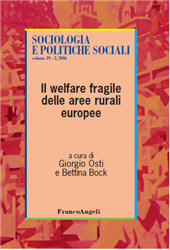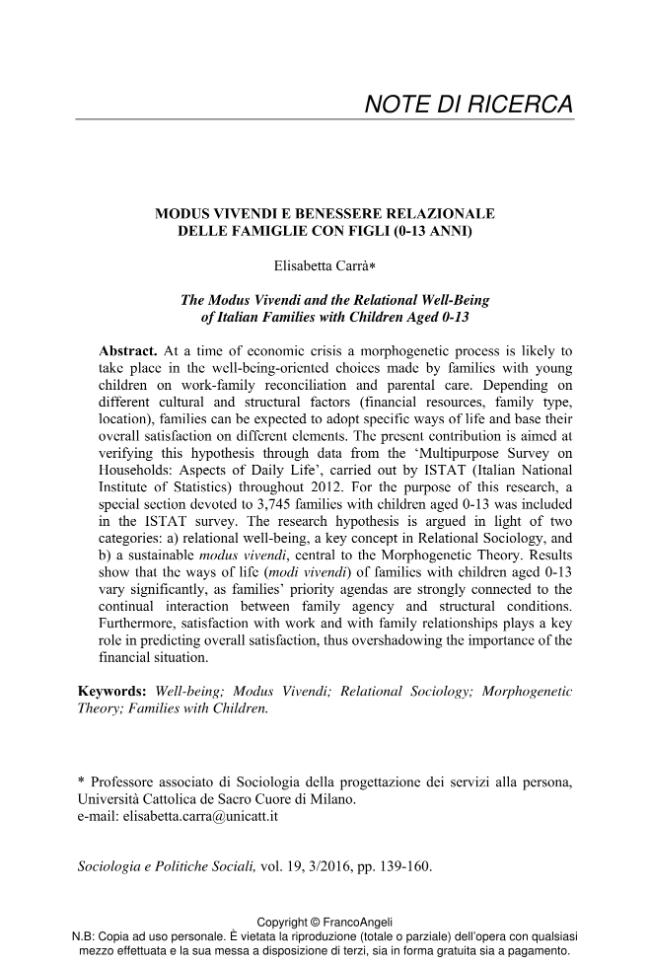Modus vivendi e benessere relazionale delle famiglie con figli (0-13 anni)
139-160 p.
At a time of economic crisis a morphogenetic process is likely totake place in the well-being-oriented choices made by families with youngchildren on work-family reconciliation and parental care. Depending ondifferent cultural and structural factors (financial resources, family type,location), families can be expected to adopt specific ways of life and base theiroverall satisfaction on different elements. The present contribution is aimed atverifying this hypothesis through data from the 'Multipurpose Survey onHouseholds: Aspects of Daily Life', carried out by ISTAT (Italian NationalInstitute of Statistics) throughout 2012. For the purpose of this research, aspecial section devoted to 3,745 families with children aged 0-13 was includedin the ISTAT survey. The research hypothesis is argued in light of twocategories: a) relational well-being, a key concept in Relational Sociology, andb) a sustainable modus vivendi, central to the Morphogenetic Theory. Resultsshow that the ways of life (modi vivendi) of families
with children aged 0-13vary significantly, as families' priority agendas are strongly connected to thecontinual interaction between family agency and structural conditions.Furthermore, satisfaction with work and with family relationships plays a keyrole in predicting overall satisfaction, thus overshadowing the importance of thefinancial situation. [Publisher's Text].
Forma parte de
Sociologia e politiche sociali : 3, 2016-
Artículos del mismo número (disponibles individualmente)
-
Información
Código DOI: 10.3280/SP2016-003009
ISSN: 1972-5116
KEYWORDS
- Well-being, Modus Vivendi, Relational Sociology, MorphogeneticTheory, Families with Children



